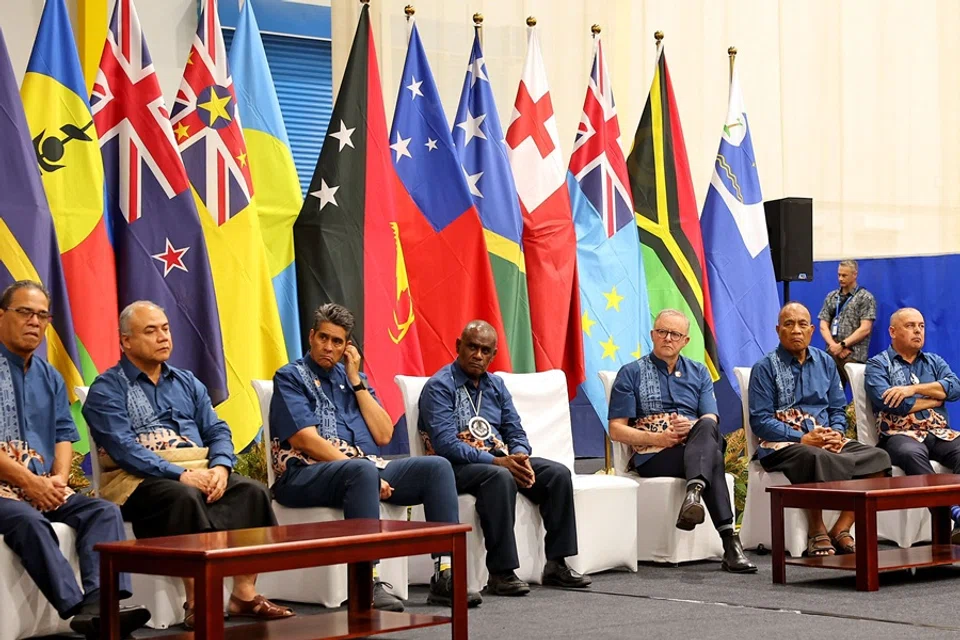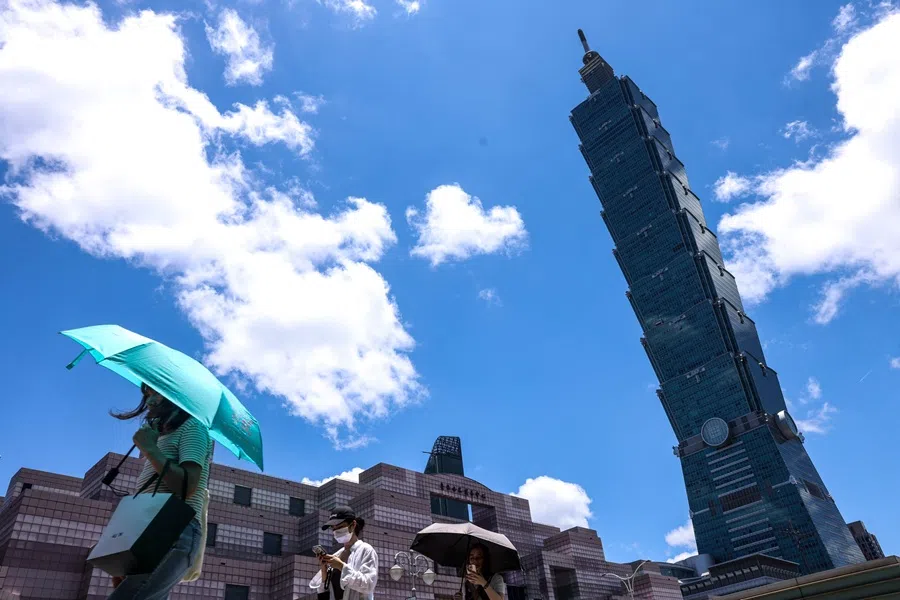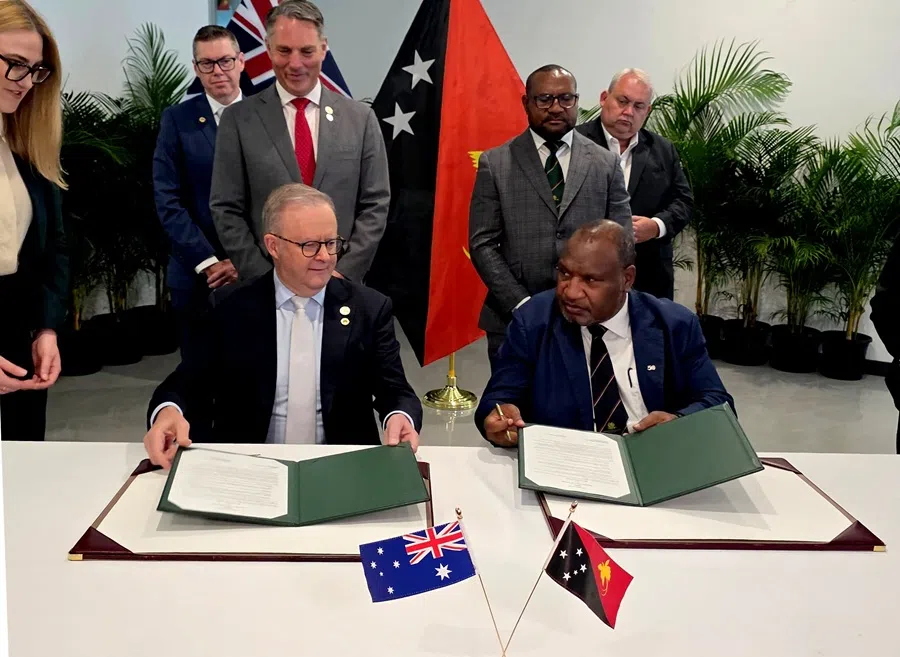China’s Pacific push isn’t a clean sweep
The 54th Pacific Islands Forum Leaders Meeting in the Solomon Islands highlights the region as a geopolitical battleground, with Pacific nations increasingly aligning with China amid the China-Taiwan rivalry, while traditional powers lose ground. Yet defiant holdouts like Palau resist, urging a stronger US presence. Academic Ghulam Ali analyses the situation.

The Pacific region is increasingly becoming an arena of escalating geopolitical rivalries. This was evident at the 54th Pacific Islands Forum Leaders Meeting (PIFLM) in Honiara, the capital of the Solomon Islands, on 11-14 September 2025. Rivalries between China and Taiwan, the US and China, and Australia/New Zealand and China loomed so large that members barred all 21 “dialogue and development partners” from the proceedings for the first time in history.
Established in 1971 as the South Pacific Forum and renamed the Pacific Islands Forum (PIF) in 1999, PIF is the region’s premier political and economic policy organisation, consisting of 18 countries and self-governing bodies across a vast expanse of the Pacific Ocean (Australia, the Cook Islands, Fiji, French Polynesia, Kiribati, Nauru, New Caledonia, New Zealand, Niue, Palau, Papua New Guinea, the Republic of the Marshall Islands, Samoa, the Solomon Islands, Tonga, Tuvalu, Vanuatu and the Federated States of Micronesia). The PIFLM is the forum’s highest annual decision-making platform.
Since 1992, Taiwan has attended PIFLM as a development partner, but its future participation as well as remaining diplomatic ties are increasingly uncertain against Beijing’s economic largesse.
China squeezes Taiwan in Pacific
The competition between China and Taiwan for diplomatic recognition is heating up in the Pacific. The Pacific region is where Taiwan has the second largest number of diplomatic ties, with three countries: the Republic of the Marshall Islands, Palau and Tuvalu. Taipei lost recognition from the Solomon Islands (2019), Kiribati (2019) and Nauru (2024), all of which switched to Beijing.
Since 1992, Taiwan has attended PIFLM as a development partner, but its future participation as well as remaining diplomatic ties are increasingly uncertain against Beijing’s economic largesse.
The Chinese representative to the Pacific raised strong objections to the communique issued at the end of the 2024 PIFLM for mentioning Taiwan. The communique stated: “Leaders reaffirmed the 1992 Leaders’ decision on relations with Taiwan/Republic of China.” Thereafter, the forum took note and omitted “Taiwan” in the 2025 joint communique, referring to “the 1992 Leaders’ decision on Development Partners”. “Taiwan/Republic of China” appeared only once in the 2025 communique in reference to Taipei’s US$3 million in assistance.

The host, the Solomon Islands, even proposed barring Taiwan’s development partner status, but retained it in the face of objections from several forum member states, notably Palau, the Marshall Islands, and Tuvalu.
The controversy surrounding China and Taiwan was one of the reasons behind the Solomon Islands’ decision to ultimately bar all dialogue and development partners from attending the 2025 PIFLM.
Pacific setbacks: New Zealand and Australia
Besides the China-Taiwan tug of war, Australia and New Zealand, regional heavyweights, close US allies, and former colonial powers of some Pacific countries, are also increasingly concerned about China’s expanding influence in the Pacific region.
The Cook Islands, self-governing but in free association with New Zealand, its former colonial power, has rapidly deepened its ties with China. In February 2025, Prime Minister Mark Brown visited China and signed the Action Plan 2025-2030 for the Comprehensive Strategic Partnership.
New Zealand criticised the Cook Islands over the lack of consultation and transparency required under the free association agreement and suspended its US$11 million assistance. Since then, bilateral relations have remained strained. Although New Zealand Prime Minister Christopher Luxon had informal conversations with his counterpart from the Cook Islands during the 2025 PIFLM, the stalemate continues.
Unlike Wellington, Canberra has decided to expand economic assistance and seek defence arrangements as a strategy to counter China’s footprint. Ahead of the 54th PIFLM, Australian Prime Minister Anthony Albanese visited Vanuatu and Papua New Guinea (PNG) to sign separate security pacts but returned empty-handed.
Australia had sought to sign the Nakamal Agreement with Vanuatu, which included US$500 million in support for economic, security and cultural cooperation. However, the coalition government of Vanuatu, led by Prime Minister Jotham Napat, stated that the proposed treaty could constrain the country’s ability to secure financing for critical infrastructure from third countries, particularly China, which is its largest external creditor.
As Albanese returned empty-handed, the Chinese embassy in PNG expressed its hope that PNG would not sign any treaty that would restrict it from cooperating with other countries.

Australia is also seeking a defence treaty (“Pukpuk”) with PNG. The proposed treaty is similar to the treaties Australia has with the US and New Zealand, under which an attack on one would be considered an attack on all. This arrangement would automatically bring the US and New Zealand into the security framework.
Albanese and his PNG counterpart, James Marape, agreed on the wording of the treaty but were unable to obtain ratification because PNG’s cabinet did not reach a quorum for approval. The terms of the agreement would impose considerable restrictions on PNG in acquiring investments from third countries, such as China. As Albanese returned empty-handed, the Chinese embassy in PNG expressed its hope that PNG would not sign any treaty that would restrict it from cooperating with other countries.
US relations with the Pacific under strain
Once a formidable external player in the Pacific, the US faces a dilemma in its policy. It seeks to maintain its traditional influence and constrain China’s presence with a minimal fiscal and political cost. Washington has long exercised sway, including through the Compacts of Free Association (COFA) — under which the US provides financial aid, defence and access to US services to three Pacific island nations, Micronesia, the Marshall Islands and Palau, in exchange for military access and strategic partnership.
... deep cuts to State Department/USAID budgets and aid freezes, combined with the US withdrawal from the Paris Agreement, strained ties with Pacific nations that view climate change as an existential threat.
In 2022, Vice-President Kamala Harris addressed the PIFLM virtually, and in 2024, Deputy Secretary of State Kurt Campbell attended in person in Tonga. However, under President Trump’s second term (from 2025), deep cuts to State Department/USAID budgets and aid freezes, combined with the US withdrawal from the Paris Agreement, strained ties with Pacific nations that view climate change as an existential threat.
Palau: “at war with China”
Although China has expanded its influence, its journey has been far from smooth. Palau, a small state situated on the Second Island Chain and one of Taiwan’s diplomatic partners, will host the 55th PIFLM in 2026. President Surangel Whipps Jr., a vocal critic of Beijing’s role, said before the forum in remarks delivered in Hawaii that his country was “already at war with China”, calling for a greater US military presence in Palau and across the region.
As the host nation holds control over procedural matters and in shaping the agendas of PILFM, the 55th PIFLM in 2026, hosted by Palau, warrants close attention.





![[Big read] When the Arctic opens, what happens to Singapore?](https://cassette.sphdigital.com.sg/image/thinkchina/da65edebca34645c711c55e83e9877109b3c53847ebb1305573974651df1d13a)